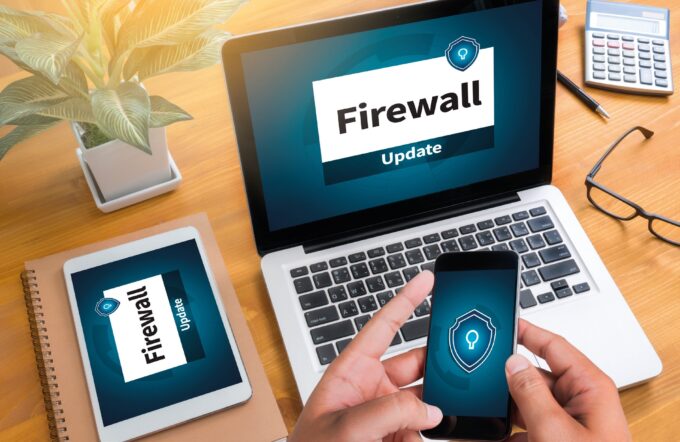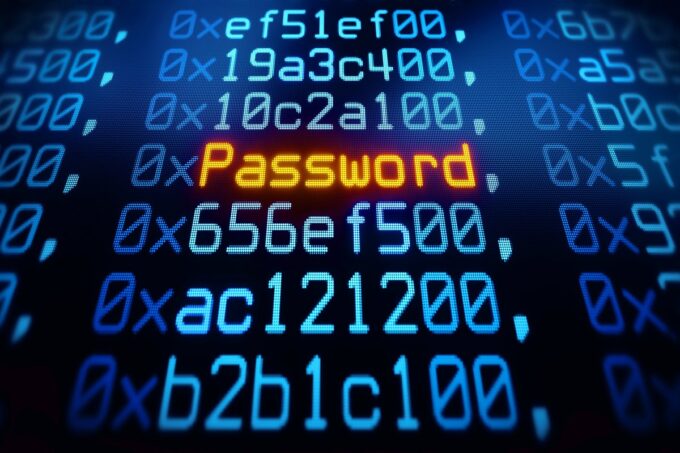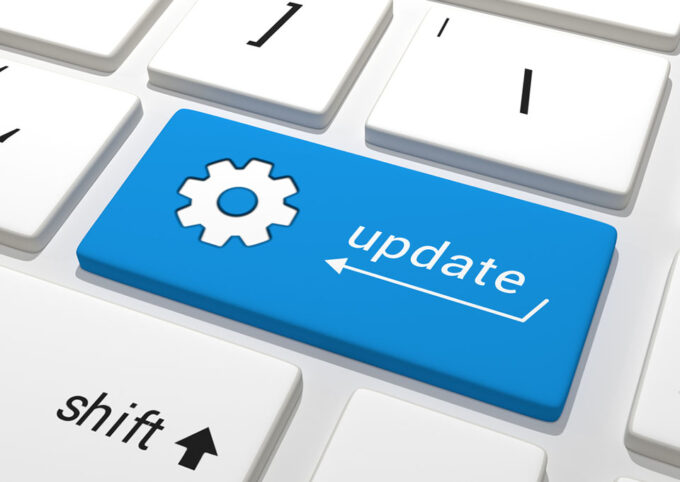Your business’ website may be attracting attention from hackers as well as potential clients: but keeping the former at bay may be easier than you think. Just a few easy little checks and changes could make a big difference to your website’s security credentials, keeping both your corporate data and your customers’ personal information safe and sound.
Defend Your Network With A Firewall

Source: theeleader.com
A quick and easy way to keep your network and your website secure is to make sure you have a strong firewall in place. Every time a visitor attempts to access your site, their data will need to go through the firewall; if this detects that it poses any sort of threat or is linked to an IP address known to be malicious, it will be blocked.
Your firewall may allow you to reconfigure its settings: unless you are an IT security professional, don’t be tempted to do this; the custom settings of firewalls are specifically designed to prevent as many threats from getting through as possible, and altering these could seriously undermine your protection. Research your options when it comes to firewalls, as different firewall types provide different levels of security.
Be Sure Of Your Website Builder
Shop around when it comes to selecting the website builder to use to construct your business’ site. Check all the information that each option provides on their security features, and it’s a good idea to read plenty of customer reviews, too. Lower quality or poorly designed platforms could feature vulnerabilities that could make your website an easy target for hackers. Get more information here on what to consider when choosing a website builder, such as the facility each offers for malware scanning and what removal tools are included in the package.
Many site builders incorporate a range of plugins that you can use to add extra security to your site; for example, you could choose to add an anti-spam extension, a malware scanner, or additional firewalls – although be sure to satisfy yourself about the quality of these optional plugins before adding them to your site.
Power Up Your Passwords

Source: theeleader.com
One of the simplest ways to ensure the security of both your internal network and your business’ website is to make sure that the passwords you’re using are strong enough. Never use information that could be easily guessed, and make sure your staff is aware not to do so either. Whole words should be avoided, too. The strongest passwords are those that comprise a mix of letters (ideally upper and lower case), numbers, and symbols.
You may wish to use a password generator tool to create truly random passwords that will be almost impossible for hackers to crack.
Get An SSL Certificate For Your Site
An SSL certificate (Secure Sockets Layer) encrypts all the data that comes into or goes out of a website; this means that even if a hacker gains access to your site, the data that they can retrieve will be meaningless code and useless to them. Once your SSL certificate is installed and activated, and you’ve updated your website, your web address will feature HTTPS rather than just ‘HTTP.’ This is a great way of assuring visitors and customers that your site is safe and secure and helps to encourage purchases as well as endorsing your image as a reliable and trustworthy brand.
Keep Everything Updated

Source: diligex.com
When a security vulnerability is discovered in a plugin, extension, or piece of software, developers usually fix it and then release an update to ensure all users continue to enjoy protection, and this is why it’s crucial to update everything regularly to keep your security levels as high as possible.
Check your providers’ websites weekly or monthly to search for updates available, and install them at your earliest possible convenience. It’s a good idea to stay as informed as you can about new security threats and to be aware of the changing nature of security protocols so that you know what to be aware of.
Be Careful With Website Uploads
If users can upload files to your website, this can pose a serious security risk, as these files could potentially be harboring viruses or other malware. Unless it’s absolutely necessary for the running of your business, it’s safest to prevent users from being able to do this at all.
Should there be no other option but to accept file uploads from users, then there are steps you can take to make this process as safe as possible. All files should be scanned for malware and viruses before you or a member of your team open them. It’s also helpful to make it clear on your website the type of file that is acceptable and to set a limit on file size, to prevent excessively large files from getting through and jamming up your system.
Keep Track Of Your Admin Users

Source: forbes.com
One of the tactics that hackers use is to gain access to a network or website, create a ghost account with administrator access, and then leave; you may well have no idea that your site has been compromised, but this action basically leaves a back door open for the hacker to return at a later date and cause mischief. Sometimes the initial access is gained by the hacker sending a phishing email to one of your site administrators, who then inadvertently provides their login details.
To protect against this, review admin users regularly so that you can quickly spot a user who shouldn’t be able to make changes to the site and remove these details. It’s also a good idea to make sure that any members of staff who only write for and upload to the website are given ‘author’ access rather than administrator privileges. Advise all of the admin users to create strong passwords, or, ideally, to use a password generator tool to create them, too.
Lastly, use and regularly monitor an activity log: this will enable you to easily see any new admin user accounts that have been created and will alert you to any other potentially suspicious activity, such as the deactivation of a security plugin.
Back-Up Your Website – Just In Case
And finally, just in case the very worst happens, and your website is hacked, resulting in all your data being lost or compromised, be sure to regularly back up your site as a safety net. Many web hosting providers will offer the option of automatic site backups, and you’d be wise to consider taking them up on this.






